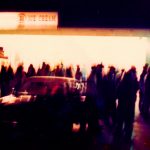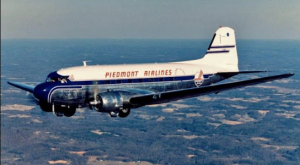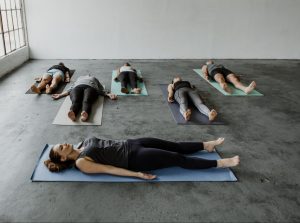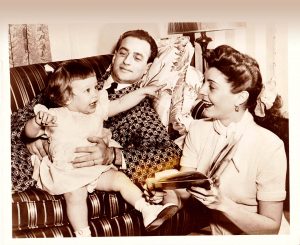
The Heart’s Memory
By Jim Dodson
As a surprise New Year’s gift — or an early February birthday gift — my wife Wendy gave us both Fitbit activity trackers.
These are nifty digital fitness bracelets that calculate everything from your heart beat to nightly sleep patterns. Linked to your smart phone, they can also measure your daily number of steps and average caloric intake; calculate your proper age and weight targets; balance your checkbook and determine your likely Oscar picks. For all I know, they may even be able to explain Donald Trump’s continued popularity in the polls and maybe why anyone really needs to keep up with the Kardashians.
They reveal, in short, lots of information about your human biology and general state of health in hard numbers, revealing who you are, moment to moment, in this physical world.
I like my new Fitbit. With the diet and exercise routines my bride has carefully plotted out for us both in 2016, our hearts ought to be in pretty good shape by summer.
This month, I suddenly find myself at the age of my father when he and I began to have deep and thoughtful conversations about life, faith and the complex affairs of the world.
Not everybody is fortunate to have the kind of extraordinary father I had, though in truth it took me almost three full decades to appreciate his grace and elegant wisdom. Owing to his unsinkable optimism and love of quoting long dead sages and poets when you least expected it, I gave him the nickname “Opti the Mystic.”
By the time I began to realize what a true gift he was to us, Opti was a youthful 62 and I was an anxious, overworked 29. He was the Southern contractor for the largest industrial advertising firm in the world, beloved by his half-dozen employees, an adman with a poet’s heart; I was the senior writer for the largest magazine in the South, the Atlanta Journal Constitution Sunday Magazine, trying to earn my way to the Boston Globe or the Washington Post and not look back.
We shared a love of books, especially history, poetry and philosophy. That winter of 1983 he was reading MacKinlay Kantor and Joaquin Miller, the colorful frontier poet of the Sierras; I was reading Fear and Loathing On the Campaign Trail and Robert Frost, wondering what it might be like to live in real snow country.
Opti was moderating the Men’s Sunday morning class at First Lutheran Church in Greensboro and helping organize an ecumenical feeding program called Urban Ministry. When I wasn’t writing about sensational murders in Atlanta — designated as the nation’s “Murder Capital” that year — I was chasing after New South conmen and empire builders, drug lords and repo kings, unrepentant Alabama grand dragons and presidential candidates.
Suddenly, though, I’d lived long enough and written about enough disturbing things to realize that I was actually more interested in what my funny old father Opti the Mystic had to say about the state of the world than my aspirations in it.
“The world is always coming apart at the seams. Be sure you don’t do the same,” he once calmly counseled me over the phone on a sleety afternoon in March of 1981.
I was standing in a mob scene of frightened commuters at LaGuardia Airport, returning from an interview at the Yale Club with a remarkable man named Morris Abram, a small-town boy from Georgia who grew up to become a leading civil rights lawyer who argued the constitutional guarantee of one-man, one vote before the Supreme Court and went on to serve as the first president of Brandeis University and work for five presidents in the realm of human rights.
The day I met him, Abram was suffering from acute myeloid leukemia, which had prompted him to begin working on his memoirs. The doctors weren’t terribly hopeful, he explained with an almost stoic shrug, the winter light falling on his handsome face from a nearby window. Snow was in the forecast for the city that day.
“So what keeps you going?” I asked.
Abram smiled. “Life. Family. Lots of interesting friends. Also work I believe in, good jokes, a sense of humor and a keen curiosity about what I may find on the other side.”
We talked about the Other Side. He meant “life after death.” He wasn’t sure what awaited him — awaits all of us — but he was curious to finally find out what, eager to discover what has obsessed sages, poets and philosophers across the ages.
We talked for almost three hours in a beautiful room with tall windows overlooking a garden and he was kind enough to send me off to catch my flight home to Atlanta with a finished chapter about his Georgia youth under my wing, explaining that he planned to call his book The Day is Short, from a quote in the Torah that goes: “The day is short, the work is great.”
Morris Abram reminded me of my own funny, philosophical father. That’s what I was thinking, at any rate, when I stepped out of the cab into the sudden sleet and mayhem waiting at LaGuardia Airport.
Ronald Reagan, it emerged, had been shot that afternoon, 61 days into his presidency, and the airport was locked down, all flights grounded. Queues were huge. People were frantically milling about. Stepping into a crowded bar where every face was aimed at the TV screen over the bar, I heard a couple of scotch sippers murmur something about a coup. So I called my dad to say hello and just hear another calming voice.
He assured me Reagan would be OK and so would America — suggested I go grab another cab back into the city, find a nice warm hotel room, have a nice dinner and maybe take in a play.
I took his advice and did just that. I found a room at the University Club and called a friend named Larry Ashmead on the spur of the moment to see if he might be free for supper. Ashmead was the executive editor at Harper & Row, a gracious, witty legend who gave dozens of best-selling authors their start. Susan Isaacs and Tony Hillerman are two of the literary giants Larry launched.
He was famous for spotting literary talent and for taking photos with the Instamatic camera he carried everywhere.
He took me to a crowded restaurant in Midtown where, he said, we were sure to see someone famous. Sure enough, right over Larry’s left shoulder sat Carly Simon, dining with some guy who looked like Al Pacino in Scarface. We also saw, as I recall, a young Donald Trump, all hair even then. Larry asked the waiter to take our picture. Somewhere I have the photo of us smiling like truant school boys. That’s Carly Simon’s fluffy head behind us.
Larry offered me a small contract to write a novel about the South. The next day, he even arranged for me to meet a top agent. Her name was Virginia Barber. She took me on based entirely on Larry’s recommendation and became my agent until she retired and moved home to Virginia a decade ago, passing me off to her gifted protégé, a young Duke-educated fellow named Jay Mandel, my agent at William Morris Entertainment to this day.
The book I wrote for Larry was called Union Grove, a novel about a struggling farm family in deep South Georgia. It was a disaster. I rewrote it twice but it never worked and Larry was kind enough to let me out of my contract. It gave me pleasure to burn the manuscript at our annual New Year’s Eve bonfire on our snowy hill in Maine many years later.
“You’ll write the novel you should have written someday,” he told me. “Just hope I’m still around to publish it.”
A short time after this, Larry introduced me to Jud Hale, the beloved editor of Yankee Magazine, and I moved to a small solar cabin on the Green River in Vermont to become the first Senior Writer in that magazine’s illustrious 80-year history.
It’s funny how this life works, connecting one soul to another. Had I not gone to New York to see Morris Abram and gotten stuck at the airport, I probably wouldn’t have phoned my dad to see if the world was going to end and been urged by him to spend another night in the city, whereupon I wouldn’t have been taken to dinner by a lovely literary giant and seen Carly Simon and her new boyfriend (and maybe young Donnie Trump) and eventually wound up finding my spiritual equilibrium and true calling on a beautiful river in Vermont, about to meet the beautiful woman who would become the mother of my children.
In Vermont, I got myself a yellow dog and a second-hand fly rod and resumed playing golf again after almost eight years of too much work and not enough play. My heartbeat slowed and my life seemed to find its proper direction.
Gratitude, Opti used to say, is the heart’s memory. It’s an old French saying, one of his favorites.
Opti the Mystic passed away in March of 1995; I was by his side in Greensboro at the time. He was 80 years old.
Morris Abram lived far longer than his doctor expected and published his beautiful memoir in 1982. He passed away in March of 2000 at age 81. I hope he found what he was looking for on the Other Side.
Larry Ashmead passed away in September that same year; he was 78. I’m sure he took his famous Instamatic with him.
And now, I’m the same age as Opti when all of these things began to happen. I don’t need a Fitbit to tell me what a lucky fellow I’ve been.





